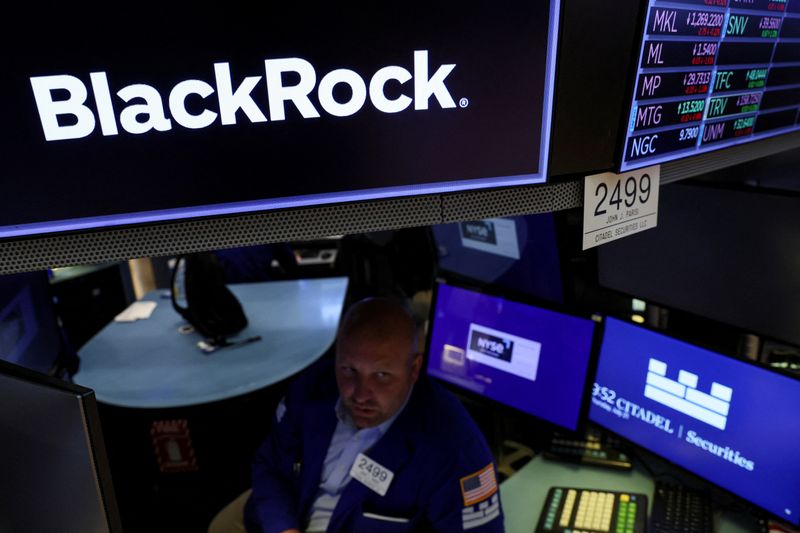By Simon Jessop and Ross Kerber
LONDON/BOSTON (Reuters) – A flagship coalition geared toward aligning the asset administration business with world local weather objectives mentioned it was suspending its actions on Monday, days after BlackRock (NYSE:), the world’s largest investor, left amid a political backlash in the USA.
BlackRock, which manages some $11.5 trillion inassets, left the Internet-Zero Asset Managers (NZAM) initiative on Jan. 9 citing confusion over its local weather efforts and authorized inquiries from public officers. The step adopted months of escalating stress from someRepublican politicians over its stance on investing in fossilfuel corporations, with concern that such stress might risefurther as President-elect Donald Trump prepares to take workplace.
The group counted greater than 325 signatories managing greater than $57.5 trillion in property as members, in line with its web site as of final week, earlier than the departure of BlackRock.
In a letter to its members seen by Reuters, the companion teams which assist handle the NZAM mentioned that they had determined to conduct a assessment of its actions.
“Recent developments in the U.S. and different regulatory and client expectations in investors’ respective jurisdictions have led to NZAM launching a review of the initiative to ensure NZAM remains fit for purpose in the new global context.
“Because the initiative undergoes this assessment, it’s suspending actions to trace signatory implementation and reporting. NZAM may even take away the dedication assertion and checklist of NZAM signatories from its web site, in addition to their targets and associated case research, pending the result of the assessment.”
CONTAGION EFFECT
Changes by the NZAM initiative could prevent the sort of flight by asset managers that diminished the influence of another investor climate group, the Climate Motion (WA:) 100+, final yr.
On the time, large fund companies cited independence considerations, not politics, as a motive for his or her dropping out. Since then stress from U.S. Republican officers has elevated on executives to again away from reflecting environmental, social and governance (ESG) assessments of their funding selections.

These embrace an inquiry from the Republican-led U.S. Home of Representatives Judiciary Committee and a lawsuit by Texas and 10 different Republican-led states that claimed that fund activism had reduce coal manufacturing and boosted power costs.
For its half, the NZAM initiative has requested members to help the aim, agreed by international locations, of capping world warming and aiming to achieve net-zero greenhouse fuel emissions by 2050.




